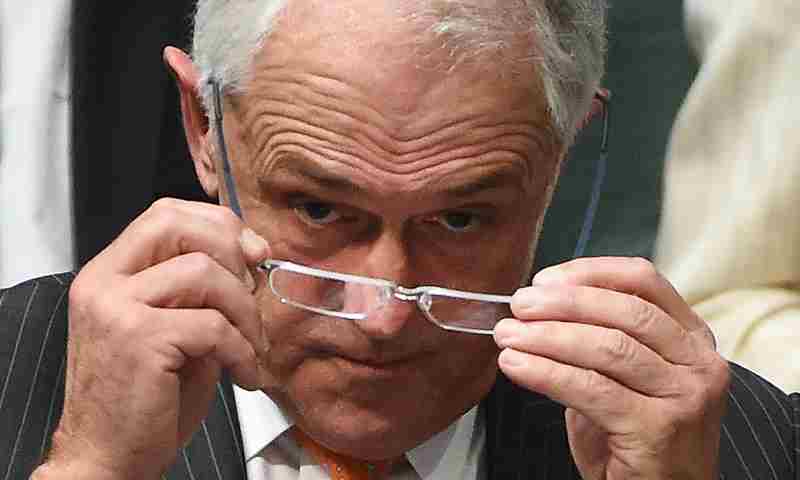
Australia’s political history has lessons on the consequences of Plebiscites, writes Dr Economou. Thanks to the awful reality that very few people study either Australian history or Australian politics any more, the lessons that the past might teach today’s politicians about the consequences of their actions are just not being learned.
The newly elected prime minister, Malcolm Turnbull for instance, is about to embark upon a political exercise that was tried once before in Australian political history and that had disastrous consequences.
Admittedly, the matter that confronts Turnbull and is inviting a bout of repeating political history is not a potential crisis entirely of his own making.
The gender equality in marriage matter (also known as the ‘same sex’ marriage issue) has reached the point where the Liberal-National coalition government is about to instigate a plebiscite as a means to determining how the parliament should legislate.
This was a strategy put in place by Turnbull’s predecessor, Tony Abbott.
We now know that Turnbull’s brief as Liberal leader is to try to achieve the policy agenda items put in place by Abbott mainly at the behest of the group of social conservatives. In other words, Turnbull is supposed to be the more publicly acceptable salesperson of an agenda set by the conservatives.
Right from the moment he became leader, Turnbull has been in the uncomfortable position of pursuing policies he clearly does not agree with – and the approach to gender equality in marriage, complete with its commitment to a plebiscite, is one these issues.
There is, of course, no need for a referendum on marriage powers as Section 51 of the Australian constitution clearly states that the Commonwealth parliament already has this power.
Abbott and the conservatives pursued the plebiscite idea presumably in the knowledge that referenda in Australia very rarely succeed.
The plan was to have the community scupper the same sex marriage reform thereby absolving the conservatives of being involved in asserting their moral position – a position, interestingly enough, the opinion polls suggest is a minority viewpoint: most Australians, when asked, indicate they are sanguine about the reform although they also say that it is not a matter of primary concern when compared with economic policy or tax policy.
Turnbull, who has never hidden his support for marriage equality, has been stuck with this Abbott strategy. Moreover, his precarious hold on the Liberal leadership denies him the authority to abandon it.
It would be interesting to know if Turnbull secretly hopes that the Senate blocks the enabling legislation and thus allow him the luxury of not having to instigate the plebiscite and being able to blame other political forces for its failure.
These points must be playing on Labor’s mind as well.
Opposition leader Bill Shorten indicated early in the new parliamentary term that Labor would seek to block any enabling bill in the Senate, but, since then, the opposition has indicated it might take a different tack.
Presumably some Labor strategists are thinking that Turnbull is in a no-win situation if the plebiscite were to go ahead. If a poll resulted in a ‘no’ vote, Turnbull the political moderate would be cast as having done the bidding of his party’s ultra-conservatives. If a ‘yes’ vote occurs, however, the conservatives would presumably seek to prevent any subsequent legislation and this would involve undermining Turnbull’s position as leader.
This latter scenario re-creates that last time national politics was affected by plebiscites.
Back in 1916, the then Labor prime minister Billy Hughes wished to legislate to bring in compulsory military service to bolster Australia’s efforts in the Great War. Hughes’ approach was against Labor policy, however.
Hughes resorted to a plebiscite presumably because he thought he had public opinion on his side and that a resounding ‘yes’ vote would force his Labor colleagues to acquiesce. In fact, the plebiscite narrowly voted ‘no’, and this precipitated a political crisis in which Hughes was expelled from his party as the Labor government fell. The whole point of the plebiscite was to try to use public opinion as a lever on recalcitrants inside the prime minister’s party, as there was no doubt the federal government had the constitutional power to bring in conscription. In short, plebiscites was a political strategy and it back-fired spectacularly.
There are eerie similarities between the political circumstances of the 1916 plebiscite and the machinations occurring in the current parliament on marriage equality.
And while Turnbull differs from Hughes in that the marriage plebiscite was someone else’s idea, the similarity resonates in the way the governing party is so divided on something that it can’t act in a way expected of Westminster governments and simply introduce this matter to the parliament and let it decide.
Turnbull is so lacking in leadership authority in the Liberal party that he can’t even evoke the memory of John Howard and follow his practice of letting such divisive matters of morality and personal values be subject to a conscience vote.
There is an awful lot riding on the marriage equality debate – a situation that would probably bemuse much of the community who expect government to be rather more pre-occupied with economics and defence than seeking in giving moral guidance to society.
Malcolm Turnbull has the most to lose from this issue, and it could be that, like Billy Hughes, he finds that a plebiscite provides precious little assistance in helping him hang on to the prime ministership.
(Dr Nick Economou teaches Politics at Monash University’s Clayton campus and is a regular commentator on Australian Radio and Television)

